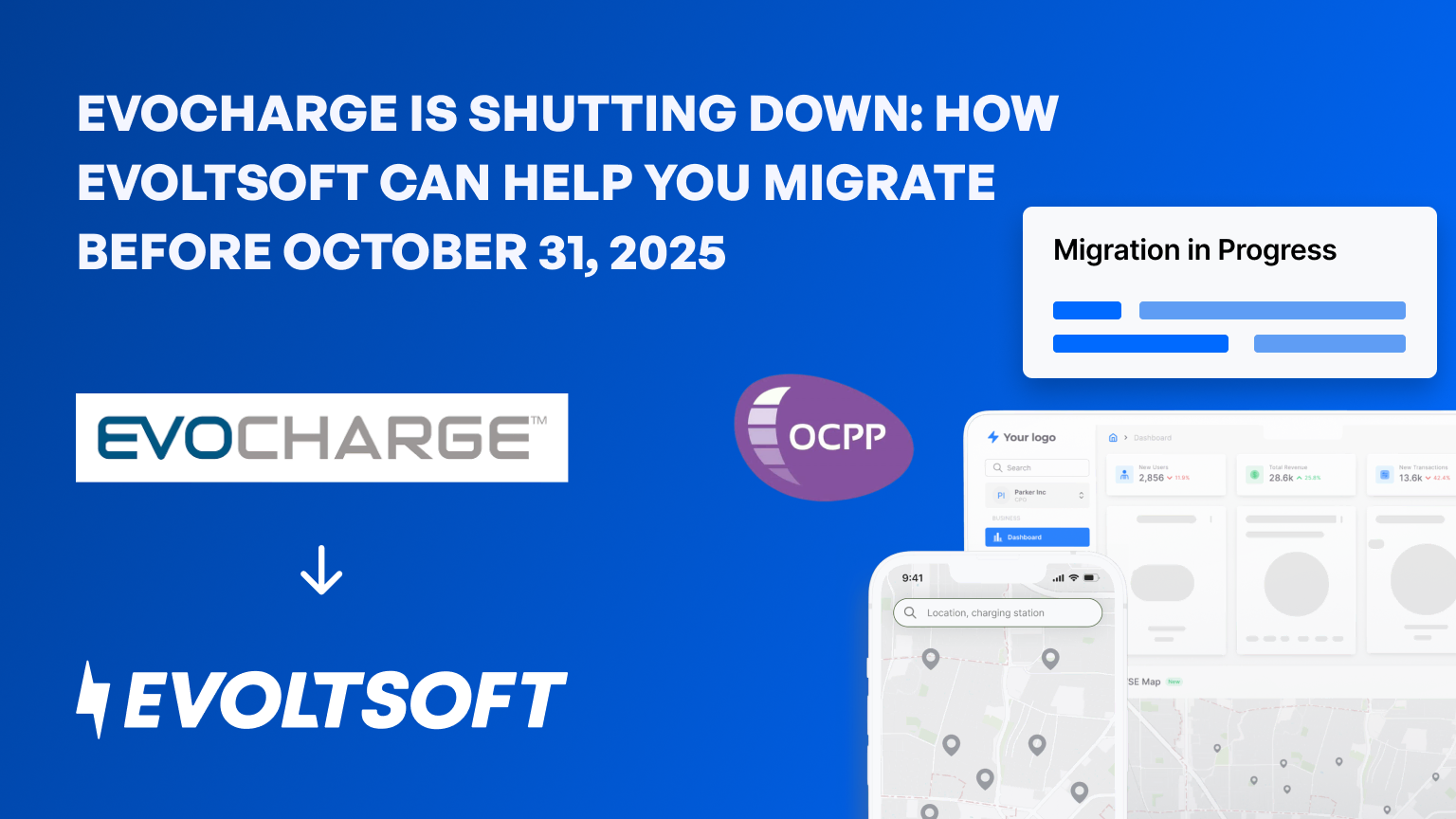Understanding OCPP and EV Charger Testing: Evoltsoft's Guide
Delve into the essence of OCPP and discover why comprehensive testing is a critical aspect of its implementation.

Unlocking the Power of OCPP: Enhancing EV Infrastructure
The electric vehicle (EV) landscape is undergoing a transformative journey, and at the core of this evolution lies the Open Charge Point Protocol (OCPP). This protocol serves as a linchpin, fostering seamless communication between diverse EV charging stations and the backend systems orchestrating charging operations. In essence, OCPP acts as a universal language, transcending barriers between charging stations manufactured by different companies, ensuring interoperability and a harmonized charging network.
Understanding OCPP: The Cornerstone of EV Charging Stations
OCPP functions as a standardized communication protocol exclusively tailored for EV charging stations. Its primary role is to facilitate smooth and seamless communication between the hardware of EV chargers and the backend systems responsible for overseeing and managing charging operations. This universal protocol brings cohesion to the charging infrastructure, promoting interoperability irrespective of the charging station's manufacturer or specific technical specifications.
At the heart of OCPP's operation is the utilization of Websockets. These Websockets serve as dynamic conduits, establishing persistent, two-way communication channels between EV charging stations and backend systems. The initiation of this connection is spearheaded by the charger, transmitting crucial information, including unique identifiers, to the backend system. Following a thorough validation process, a handshake formalizes the connection, creating a robust platform for efficient communication and enhancing the operational effectiveness of EV charging stations.

Testing OCPP: Ensuring Robust and Reliable Charging Networks
The reliability and effectiveness of a network of OCPP chargers hinge on rigorous and regular testing. Hardware testing becomes an indispensable tool in preempting charging failures and addressing compatibility issues that may arise. By simulating various scenarios during testing, charging stations can be optimized to deliver peak performance, a critical consideration for managing complex charging sites where diverse EV models and charger types coexist.
Charging failures, if left unaddressed, can lead to inconveniences for EV users, causing delays and potentially stranding drivers. Beyond individual inconveniences, widespread charging faults can significantly impact public perception and trust in the EV infrastructure. Therefore, the identification and resolution of potential issues through proactive testing are paramount to maintaining user satisfaction and confidence in the EV charging network.
Navigating Connection Issues and Charger Configuration Challenges
Connection issues and challenges in charger configuration represent common obstacles encountered in the EV charging infrastructure. From misconfigured charger IDs to the absence of Transport Layer Security (TLS) and high latency concerns, these challenges necessitate proactive testing for a robust and reliable charging ecosystem. Proper testing enables the identification and rectification of potential issues related to connection and configuration, ensuring seamless operation.
Charger configuration, with its intricacies such as setting correct power parameters, identifying different charger types, and conducting OCPP configuration checks, poses its own set of challenges. Regular testing and monitoring become instrumental in comprehending and addressing these challenges effectively.
Exploring Power Profiles and Default Profiles
Power profiles emerge as pivotal components influencing the charging process. These profiles essentially guide how chargers interpret power and current information from an EV. In simpler terms, a power profile acts as a set of instructions determining the power and current values throughout a charging session, ensuring optimal efficiency and safety. Testing power profiles involves scenarios where the charger must interpret changing EV power requirements, battery status, or grid conditions, ensuring correct and consistent responses.
Default profiles, on the other hand, define the charger's behavior under standard conditions. These profiles dictate automatic responses, such as starting a charging session or shutting down when no explicit commands are received from the backend. Testing default profiles is centered around verifying the charger's behavior under standard conditions, ensuring alignment with the defined profile in the absence of explicit commands from the backend system.
In Conclusion: Orchestrating Effective EV Charging Stations
In conclusion, a comprehensive understanding of OCPP and its mechanisms is fundamental to the seamless operation of EV charging stations. Rigorous testing, addressing connection issues, power and default profiles, and ensuring correct charger configurations are crucial aspects of this system. Evoltsoft stands as a powerhouse in the realm of charging management software, simplifying OCPP hardware testing through a step-by-step process and automated elements.
To delve deeper into how Evoltsoft's solution can provide smart charging features and testing tools for your charging infrastructure, schedule a demo today. Elevate your EV charging experience with Evoltsoft's cutting-edge solutions.



